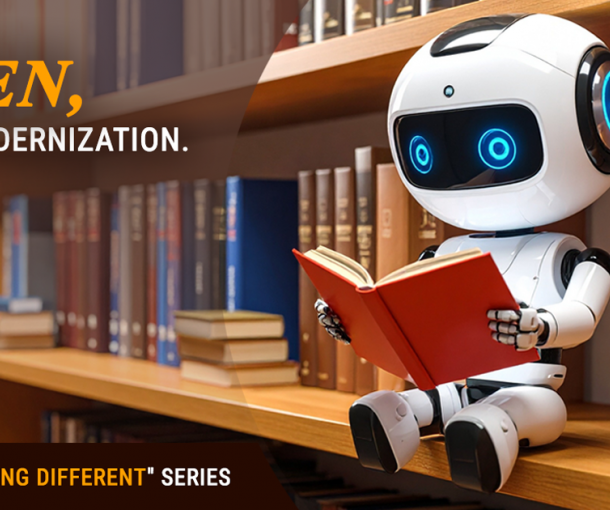
AI Adoption in B2B Business — And the Challenges It Creates for Tech Leaders
Artificial Intelligence (AI) is no longer an experimental tool—it’s now a core driver of innovation, efficiency, and competitive advantage for B2B companies across virtually every industry. From automating workflows to generating predictive insights, AI is enabling organizations to streamline operations, improve customer experiences, uncover risk and unlock new revenue streams.
However, while the promise of AI is vast, its adoption brings complexity and concern; especially for senior technical staff and IT leaders tasked with integrating it responsibly and effectively. In this post, we explore how B2B companies are using AI today, and the unique challenges it presents for CIOs, CTOs, and software engineering leaders.
How B2B Companies Are Leveraging AI
1. Process Automation & Efficiency
AI-driven automation is transforming repetitive and time-consuming back-office tasks. Robotic Process Automation (RPA) tools are being infused with machine learning to handle invoice processing, data entry, document classification, and more. Freeing up human workers for higher-value tasks while reducing errors and improving turnaround times.
2. Predictive Analytics & Forecasting
B2B organizations are using AI models to analyze historical data and predict future outcomes—such as sales trends, inventory demand, equipment maintenance needs or uncovering risk. These kinds of predictive insight help businesses, in manufacturing, logistics, insurance and supply chain sectors; reduce downtime, optimize inventory, and make better strategic decisions.
3. Personalized Customer Experiences
B2B buying journeys are complex and often involve multiple stakeholders. AI is helping businesses personalize interactions through advanced segmentation, dynamic content recommendations, and intelligent chatbots. This creates more relevant and timely engagement throughout the sales funnel.
4. Sales & Marketing Optimization
AI is enhancing CRM platforms with intelligent lead scoring, churn prediction, and conversion modeling. Sales teams benefit from smarter prospecting tools, while marketing departments use AI to refine campaign targeting and optimize performance in real-time to improve customer acquisition targets.
5. Fraud Detection and Cybersecurity
AI algorithms can detect unusual patterns in network traffic or transactional data, helping B2B organizations identify threats faster. In the finance and insurance sectors, AI helps prevent fraud by recognizing anomalies that would be difficult for humans to detect manually.
Challenges Facing Technical Leaders in AI Adoption
While the use cases are compelling, integrating AI into B2B operations is far from plug-and-play. Technical leaders are grappling with a range of strategic, operational, and ethical challenges.
1. Data Quality and Governance
AI systems are only as good as the data they’re trained on. Senior IT staff often struggle with legacy systems, fragmented data sources, and poor data hygiene. Before AI can deliver meaningful results, organizations need to standardize, cleanse and complete software audits, while also governing their data— usually requiring significant time and investment.
2. Infrastructure Readiness
AI workloads are computationally intensive and may require significant changes to IT infrastructure. Moving to cloud-based platforms, enabling real-time data pipelines, and investing in Graphics Processing Units (GPUs) or specialized hardware are all challenges that fall under the CTO’s purview.
3. Talent Gaps & Team Alignment
There’s a growing shortage of AI Engineers, machine learning talent, and data experts which is making it difficult for B2B companies to build or scale internal AI capabilities. Technical leaders must also bridge gaps between data scientists, software engineers, and business teams to ensure models are not only accurate but also aligned with business objectives. Staff augmentation services are a fast and effective way to fill this void on either a short- or long-term contract basis, decreasing the impacts on HR and Recruitment efforts.
4. Model Transparency and Explainability
Many AI models—especially deep learning systems—act as black boxes, making it difficult for technical leaders to explain how decisions are made. This lack of transparency poses challenges for compliance, trust, and accountability—especially in regulated industries like healthcare, pharma, finance, and insurance.
5. Ethical & Responsible AI Use
AI can unintentionally reinforce bias, make flawed decisions, or be used in ways that violate privacy norms. Senior technical leaders must navigate ethical considerations, ensure fairness in algorithms, and establish governance practices for responsible AI deployment. This includes vetting training data, building diverse teams, and creating review processes for AI outcomes to decrease risk.
6. Change Management & Internal Buy-In
Implementing AI isn’t just a technical upgrade—it’s a cultural shift. Many business units are skeptical or resistant to AI-driven changes. It’s up to technical leaders to communicate the benefits clearly, involve stakeholders early, and demonstrate quick wins to build momentum.
The Path Forward
For B2B businesses, the question is no longer if they should adopt AI, but how they can do it effectively, responsibly, and at scale. Senior IT and software engineering leaders play a critical role in navigating this evolution—from selecting the right use cases and building foundational data strategies, to ensuring ethical deployment and long-term sustainability.
Successful AI initiatives are those that are tightly aligned with business goals, driven by clean, well-governed data, and supported by cross-functional teams with a clear vision. As AI continues to evolve, technical leadership must remain agile, curious, and forward-thinking—embracing innovation while managing risk and complexity with care. Technical leaders must also know when to wave the white flag and seek advice from industry experts with AI experience.
Conclusion
AI offers immense promise for B2B companies looking to improve operations, strengthen customer relationships, and gain a competitive edge. But it’s not without its challenges. For senior technical staff, the road ahead involves more than just technical implementation—it requires strategic alignment, cultural change, and a thoughtful approach to ethics and governance.
Done right, AI can be a game-changer. The key is in how it’s led.


